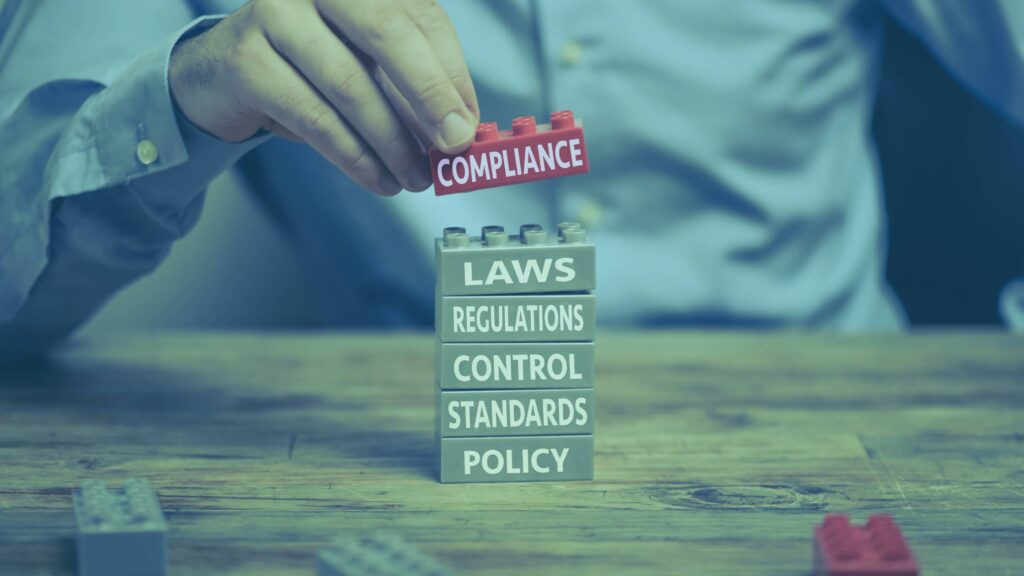Impact Of Non-Compliance In An Organization
In general, compliance refers to all of the rules, regulations, and policies that a company must follow. In essence, compliance assists firms in acting properly and adhering to labour, work safety, finance, operations, and accounting rules. And when an employee or organization fails to follow these industry standards, non-compliance occurs. And as a result of this, organizations place themselves and others in danger. They must thus be adaptable and keep up with the changing requirements. Otherwise, the impact of non-compliance in the organization might be disastrous.
Non-compliance might be of varying severity. It might be a minor error, something overlooked by accident, or something with a crucial high effect that threatens the business’s survival. Minor non-compliance is tolerated in the short term or in isolation. However, regular non-compliance may cause a more serious problem. Because regulatory requirements differ depending on the industrial sector in which you operate, you should be aware of the legislation that applies to your industry.
What Are The Consequences Of Non-Compliance In An Organization?
Non-compliance has various implications for each business. Some rules and regulations apply only to organizations in a given industry, while others apply to all firms. Fraud, corruption, and conflicts of interest are common threats in nearly all businesses. The kind and intensity of non-compliance have a direct impact on the repercussions that the firm will face. Among the most prevalent outcomes are:
Penalties
Noncompliance might cost you a lot of money in the form of fines. Regulatory fines may considerably reduce the earnings of large corporations, while smaller corporations may face much greater losses, perhaps forcing them out of business. For external regulations, state authorities apply penalties ranging from insignificant sums to severe consequences. When a company or individual fails to comply with legal obligations, they are quite likely to face sanctions.
Fines are imposed by government regulatory agencies based on the degree of non-compliance. Fines are the most commonly used penalty for both people and businesses. It can cost anywhere from a few hundred dollars to several million dollars. Businesses that fail to comply with the rules of other organizations may lose their certification or license. As a result, the repercussions go beyond just higher prices.
Reputational Damage
Non-compliance has enormous reputational consequences. A non-compliance issue can cast a negative light on a corporation. The level of noncompliance can have a significant impact on brand value and reputation. This might potentially result in future missed chances.
Consumers expect firms to follow rules and regulations as a basic minimum. Furthermore, people expect firms to operate ethically and with social responsibility. If non-compliance is made public, an organization’s reputation is extremely likely to suffer. Customers will begin to question a company’s behaviour and may seek out alternative firms to purchase services and products. This might lead to revenue loss and a loss of client loyalty. When paired with additional repercussions, such as fines, this might mean that the firm is not profitable for an extended period and is unable to grow as sales decline. It may also jeopardize the company’s ability to find partners and collaborate with other organizations.
Legal Actions and Incarceration
Compliance officers directly face regulatory and government enforcement action in unusual circumstances of non-compliance. In times of financial crisis, regulators and government agencies increase their scrutiny of compliance officers’ roles and responsibilities. These authorities, in addition to punishing the corporation, hold individuals accountable for their misbehaviour. This is a red flag for compliance officials who have previously been shielded from their wrongdoing.
Imprisonment is only used for serious violations of the law. Imprisonment is not as prevalent as other penalties, yet it is one of the most serious. It is a consequence mostly for people rather than organizations, as determining who to blame in a firm is more difficult. Prison sentences differ depending on the nation, state, and degree of non-compliance. In some cases, jail penalties of up to 20 years are possible. Even if a person or business director avoids incarceration, critical nonconformities might result in a criminal record.
High Staff Turnover
Employees often desire to work for a firm that knows and values them. Depending on the nature of the noncompliance, it might imply that the company does not appreciate its employees and does not prioritize their well-being. Examples include a corporation failing to comply with employment rules and, as a result, underpaying its employees or neglecting to provide them with the necessary breaks.
Staff replacement may be costly and time-consuming. High personnel turnover may also disrupt and hinder corporate operations. This is a big disadvantage for organizations since it causes them to lose loyal personnel due to their failure to comply with and enforce standards.
Conclusion
The regulatory environment is constantly evolving, with regulatory organizations establishing and enforcing an increasing number of regulations. And if you need any help, Procloz is here to guide you. Procloz offers business process management & delivers compliance, payroll services, and employer of record (EOR) services across different regions. Contact us to know more.

